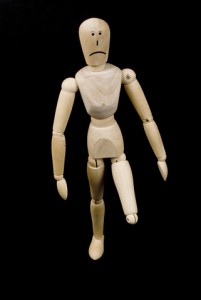Do you cringe at the mention, thought or picture of a rat? Does the mere thought of these rodents make your skin crawl? You’re not crazy. You are among thousands of people suffering from Musophobia or Murophobia, me included.
Unlike a general fear of mice and rats, Musophobia is the irrational and debilitating fear or anxiety of encountering mice or rats or even seeing a picture of them. The fear of encountering a mouse is so intense that it creates an exaggerated feeling of danger, thus affecting the victim’s daily life. For instance, a person suffering from Musophobia may avoid environments they suspect could be rats or mice infested. Or even stop doing an activity they enjoyed before after an encounter with such.
Most people who suffer from Musophobia report that they cannot remember a time when they did not have this phobia. Often it gets worse with age.
Symptoms of phobia of rats
Phobias feel different for all victims. Likewise, the symptoms of Musophobia vary in severity from victim to victim. The most common physical symptoms of rat phobia include:-
• Sweating and trembling uncontrollably
• Crying and climbing on chairs or tables
• Fleeing
• Disorientation or confusion
• Tightness or pain in the chest
• Headache, dizziness or nausea
• Increased palpitations or difficulty breathing
Psychological symptoms of phobia of rats are:-
• Panic attacks after encountering or caused by anticipation of encountering a rat or mice
• Avoidance of areas such as pet stores or abandoned buildings with the presumption that such areas are likely to have rats or mice.
How would you develop a phobia of rats?
It’s quite natural to have an aversion to rats to prevent parasite infestation, avoid destruction of property and avoid diseases. After all, there are about 70 rodent-borne diseases across the world.
A child can develop a phobia of rats by learning this behaviour from a parent, any other family member or a friend. Seeing a person with a phobia for rats, shrieking, screaming or jumping up at the sign of a rat could easily transfer this phobia to the child. It does not help that horror films associate dark, dirty and dilapidated environments with such rats and mice, further fuelling the child’s negative perception.
Sometimes, a phobia of rats could be caused by a sensitising event. This refers to an unexpected event or experience that triggers a high level of anxiety or phobia of rats, as was the case with me. Earlier in my life, I remember having a natural aversion to small, scurrying animals and insects. Just a fear, not a phobia. One day, while playing with some neighbour’s kids outside, one of them hurled a dead rat while I wasn’t looking. Startled, but thinking we were just playing, I bent down to pick it up and hurl it back at her. Imagine my fear when I realized it was a rat! That minor event changed my fear of rats into a phobia.
The phobia of rats can also be genetically transferred.
Impact on your life
A person with a phobia of rats will avoid environments where they could be found. As mentioned, they may avoid visiting pet stores or going to neglected buildings. However, the fear of infestation may trigger feelings of acute stress and helplessness that may interfere with the phobic person’s daily life. For instance, they may be unable to go to work if they encounter a rat or mouse. Such a person may not visit friends or go on holiday for fear of mice or rats.
Treatment for a phobia of rats
If you find that your phobia of rats is disrupting or interfering with your day-to-day activities, it is time to seek treatment. In cases where your phobia is not extreme, your doctor may recommend a short-term solution such as taking anti-anxiety medication that helps ease the debilitating fear or make it manageable.
Your doctor may recommend such long-term solutions as:-
Psychotherapy
This form of treatment involves the therapist helping you through the process of thoroughly evaluating your phobia of rats. For example, if your phobia was caused by a traumatic experience, the therapist will help you evaluate whether the danger you feel is real or perceived.
Gradual desensitization therapy
This involves taking the victim through systematic desensitization by exposing them to the source of phobia slowly in a safe space and guiding them through the process of facing them without the negative effects. Usually performed by a therapist, this form of treatment may first begin with the phobic being asked to imagine the source of fear and then being guided on how to overcome the subsequent stress and anxiety. Your therapist may then introduce other rat representations such as drawings or pictures to diffuse the anxiety that each form of representation invokes.
Cognitive behavioural therapy (CBT)
CBT is often combined with desensitization therapy to help the phobic reshape the emotions and beliefs they have been associating with rats and mice.
Hypnotherapy
In this form of treatment, the patient is guided into a trance-like state where they are open to the clinician’s suggestions and guidance. In that state, the therapist helps the patient explore their subconscious for probable causes of the phobia of rats. They can then guide them on how to overcome the fear.
A person with a phobia of rats may also choose to work through the fear on their own. For instance, they may take steps to educate themselves on how advanced medicine has helped counter diseases caused by rats and mice. They may also take proactive steps to minimize the possibility of infestation.
Summary
Having a natural fear of rats and mice or feeling uneasy is a normal response to danger that helps keeps us safe. However, this fear should not trigger extreme panic or anxiety or hinder a person’s ability to function. Just like other forms of phobia, Musophobia can take a toll on your mental health. Modern medicine and technology have made it possible for phobic victims to successfully confront their fears in a safe environment thus overcoming them.





